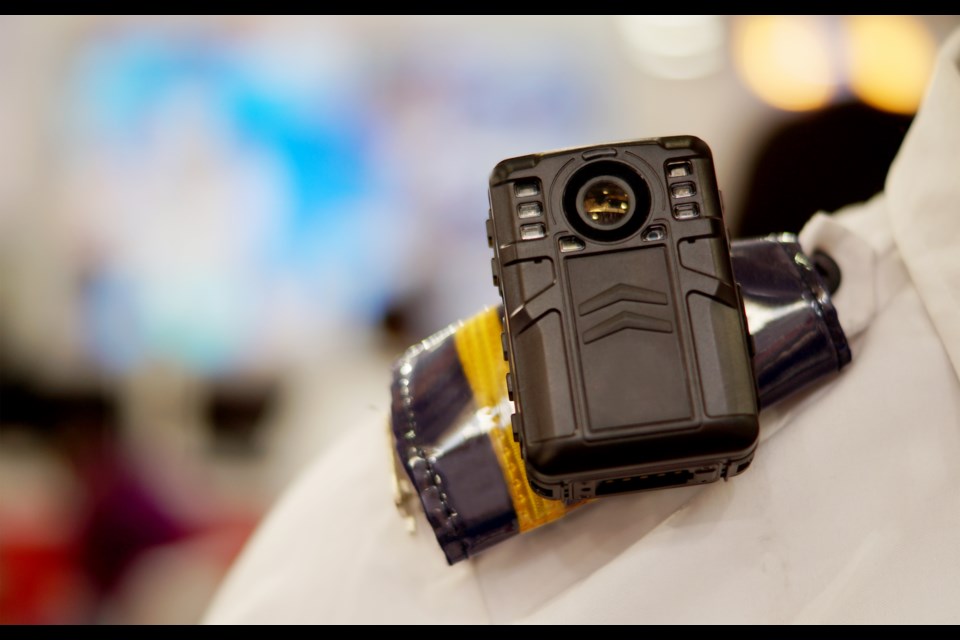District council acknowledged the benefits of police body cameras but was wary about the potential impact to the municipality’s wallet.
Squamish RCMP officers, like Mounties throughout the country, are expected to start wearing body cameras sometime in the fall.
On July 6, District council was asked to provide feedback on this upcoming federal initiative, and they responded with a variety of points, ranging from concerns over the costs to whether racialized communities were being given enough of a chance to provide comment on the program.
The implementation of body cameras in 2021 is the result of the prime minister’s direction to increase transparency and public confidence in the RCMP.
This order was given in June last year, shortly after the reckoning over systemic racism in policing sparked by the death of George Floyd.
Mayor Karen Elliott had significant concerns.“What are we measuring here? Do you know? Our prime minister had an idea and said it out loud, and now we’re going to bear the costs and the impacts of that without really thinking through what it is we’re trying to change; how do we measure that change,” said Elliott.
“I don’t see anything in [this presentation] that talks about measuring our current state, so we know whether our cameras help us...I think this is hasty and not well thought through.”
She said the cameras have a role to play, but it’s just one piece for establishing trust in policing.
Other issues raised included better training for officers on systemic bias, among other things, she said.
“If I’m going to racially profile someone, I can still do it with a body camera on. I might just do it nicely, but it doesn’t mean I haven’t stopped,” Elliott said, though she noted she was talking generally, not specifically about Squamish officers.
Dan Pagely, the municipality’s acting general manager of community services, said that officers are expected to have the cameras on and recording whenever answering a call on the field.
Mental health calls, crisis interactions, public disorder, protests and investigations are all examples of when the cameras will be used, he said.
Pagely said the Squamish detachment estimates it will need cameras for two watch commands, each consisting of four to six people.
Each camera is estimated to cost between $2,000 and $3,000.
The municipality isn’t expected to foot the bill for the first two years of the program, but the District will have to start paying for the program afterward.
In addition to the cost of the cameras, officials are concerned that it would take a significant amount of police staff time to sift through and manage the many hours of video footage.
A pilot project has been conducted in Nunavut, said Pagely, and there have been no significant concerns stemming from it.
Councillors expressed a range of views.
Coun. John French was enthusiastic about the cameras.
“I do fully support the RCMP and other Canadian policing agencies using current technology, modern technology to provide better and effective policing, and I look forward to the day when cameras start recording here in Squamish,” French said.
Coun. Eric Andersen said cameras have their benefits, but noted it was rather sad that such a measure was needed for public trust, as he noted officers have spent much volunteer time building rapport with locals.
On the other hand, Coun. Jenna Stoner voiced concerns about the potential costs of the program.
“[I] appreciate that this cost is not being downloaded to us in the first two years, but in years three, four, and going forward, there is potentially huge cost implications for us both in terms of the technology, as well as the increase in workloads in terms of managing of the evidence that is collected via video,” she said.
Stoner also noted there needed to be more clarity over when cameras can be turned off.
“There’s a lot of discretion given to officers when that video can be turned on and off,” she said.
Feedback from racialized communities, especially local Indigenous peoples, was a priority for Coun. Chris Pettingill.
He said it was essential to include their voices in the feedback process and asked staff to clarify if there was a means to make them part of this process.
Elliott wondered if the cameras would use facial-recognition technology, which has been shown to have problems accurately identifying people from racialized communities.
She also said that there should be hard deadlines for releasing videos that have been requested by the public, similar to how Freedom of Information requests work.
RCMP officials were not on hand at the meeting to field questions.
The Chief will follow up with them.


